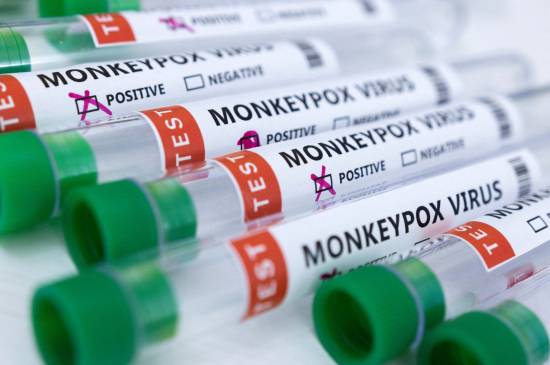The World Health Organization (WHO) has warned that further spread of monkeypox is possible at festivals and major events planned for this summer in Europe.
"The potential for further transmission in Europe and elsewhere over the summer is high," WHO Regional Director for Europe Hans Henri Kluge said in a statement.
However, Kluge said, festivals and celebrations planned for the coming months also offered an opportunity "to raise awareness and strengthen individual and community protection" among the young, the sexually active and the globally mobile.
According to Kluge, investigations into the cases so far suggest that the outbreak in Europe dates from mid-April. It is the largest and most geographically widespread ever reported outside West and Central Africa, areas where monkeypox is endemic.
Kluge said rapid monkeypox transmission was assisted by the lifting of COVID-19 restrictions in most of Europe in recent months. Although many cases so far have been linked to sexual activity, Kluge said, he stressed that the virus could affect anyone.
As the virus didn't spread through the same pathways as COVID-19, there was no need for the sweeping public health measures imposed in the wake of the coronavirus pandemic, Kluge said.
"But – and this is important – we do not yet know if we will be able to contain its spread completely," he added.
WHO on Tuesday said seven African countries have cumulatively reported nearly 1,400 monkeypox cases so far this year, with 1,392 suspected and 44 confirmed cases. The cases have been reported in Cameroon, Central African Republic, the Democratic Republic of Congo, Liberia, Nigeria, the Republic of the Congo and Sierra Leone, the WHO regional office for Africa said in a statement.
The number of cases in 2022 is slightly fewer than half of the cases reported in 2021.
Matshidiso Moeti, the WHO regional director for Africa, warned against having two different responses to monkeypox – one for Western countries which are only now experiencing significant transmission and another for Africa.
"We must work together and have joined-up global actions which include Africa's experience, expertise and needs. This is the only way to ensure we reinforce surveillance and better understand the evolution of the disease while scaling up readiness and response to curb any further spread," she said.
Moeti noted that Africa has successfully contained past monkeypox outbreaks, and from what they know about the virus and modes of transmission, the rise in cases can be stopped./agencies


